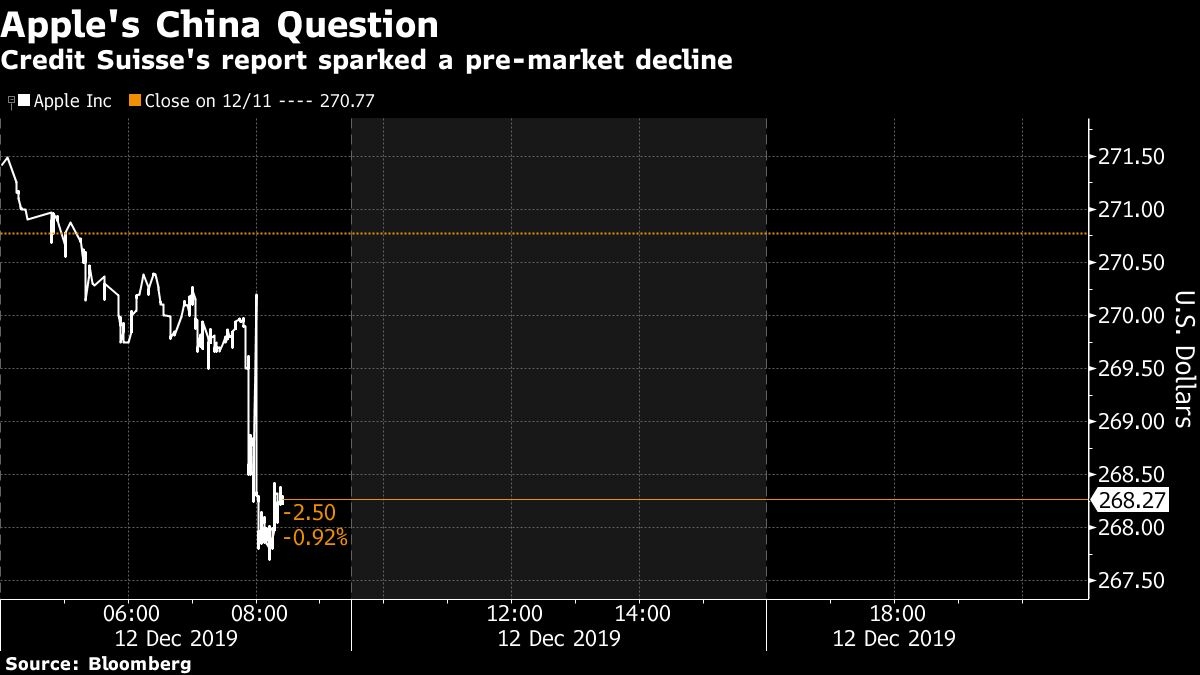Dec 12, 2019
Apple analyst sees 'sustained softness' in China iPhone sales
, Bloomberg News
Apple iPhone 11 continues to be 'en fuego': Tech analyst
Apple Inc. shares fell in pre-market trading on Thursday, after Credit Suisse warned that the company’s iPhone sales in China had recently been weak.
Shipments of the iPhone fell 35.4 per cent on a year-over-year basis in November, “significantly lagging the 0.2 [per cent year-over-year] increase in the broader Chinese smartphone market,” analyst Matthew Cabral wrote to clients, citing MIIT data. Cabral has a neutral rating and US$221 price target on the stock.
While monthly data is “volatile” and the timing of recent iPhone launches could be skewing comparisons, “the drop in November marks the second straight double digit decline.” This “sustained softness” is “an incremental concern,” although Credit Suisse is reluctant to extrapolate this trend to other regions.
Shares of Apple fell 0.9 per cent before the bell, with the stock seeing a sharp move lower after Credit Suisse’s report.

The firm wrote that the lower-priced iPhone 11 was the most popular model, following similar commentary from KeyBanc Capital Markets about North America and Western Europe. The lower average selling price of this model “likely adds further pressure to Apple’s Greater China sales,” Credit Suisse wrote.
Credit Suisse’s comments come after UBS wrote that “overall iPhone demand in China was down [approximately 35 per cent year-over-year] in the month of November,” a trend that was “likely impacted” by the timing of model launches.
“If we look at the data over the last five months, which normalizes the impact of launch timing, iPhone shipments are down five per cent versus 3.3 per cent overall market decline,” wrote analyst Timothy Arcuri in a note dated Dec. 11. UBS has a buy rating and US$280 price target on Apple.
Apple derived nearly 17 per cent of its 2019 revenue from the greater China region, according to data compiled by Bloomberg. The iPhone accounted for nearly 55 per cent of its total 2019 revenue.
Earlier this week, Rosenblatt Securities wrote that Apple may cut production of its iPhone 11 Pro and iPhone 11 Max by about 25 per cent, due to weaker demand for the two models.
Shares of Apple are up more than 50 per cent from a June low, and the stock has recently traded at record levels.





